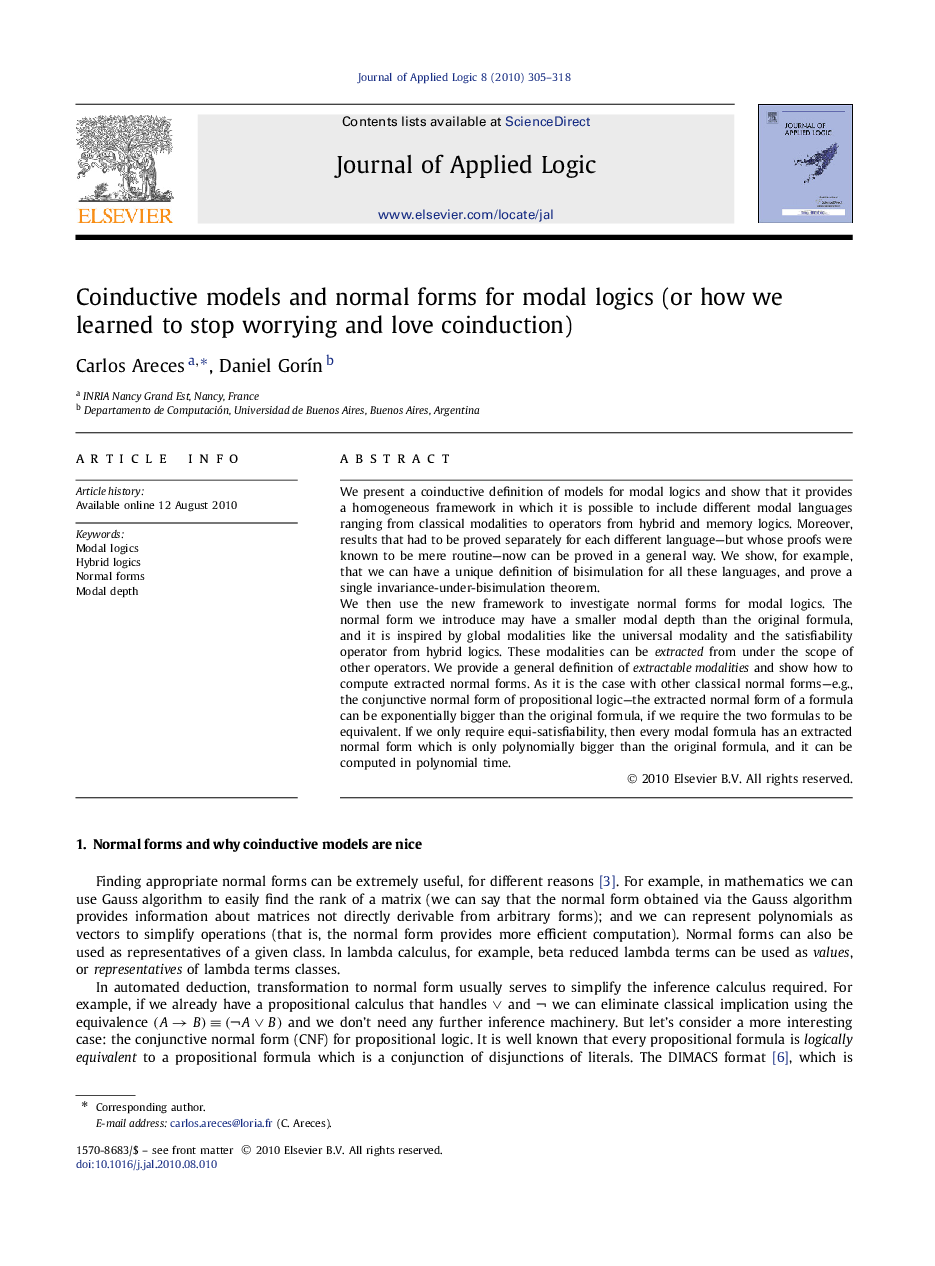| کد مقاله | کد نشریه | سال انتشار | مقاله انگلیسی | نسخه تمام متن |
|---|---|---|---|---|
| 4663027 | 1345221 | 2010 | 14 صفحه PDF | دانلود رایگان |

We present a coinductive definition of models for modal logics and show that it provides a homogeneous framework in which it is possible to include different modal languages ranging from classical modalities to operators from hybrid and memory logics. Moreover, results that had to be proved separately for each different language—but whose proofs were known to be mere routine—now can be proved in a general way. We show, for example, that we can have a unique definition of bisimulation for all these languages, and prove a single invariance-under-bisimulation theorem.We then use the new framework to investigate normal forms for modal logics. The normal form we introduce may have a smaller modal depth than the original formula, and it is inspired by global modalities like the universal modality and the satisfiability operator from hybrid logics. These modalities can be extracted from under the scope of other operators. We provide a general definition of extractable modalities and show how to compute extracted normal forms. As it is the case with other classical normal forms—e.g., the conjunctive normal form of propositional logic—the extracted normal form of a formula can be exponentially bigger than the original formula, if we require the two formulas to be equivalent. If we only require equi-satisfiability, then every modal formula has an extracted normal form which is only polynomially bigger than the original formula, and it can be computed in polynomial time.
Journal: Journal of Applied Logic - Volume 8, Issue 4, December 2010, Pages 305–318